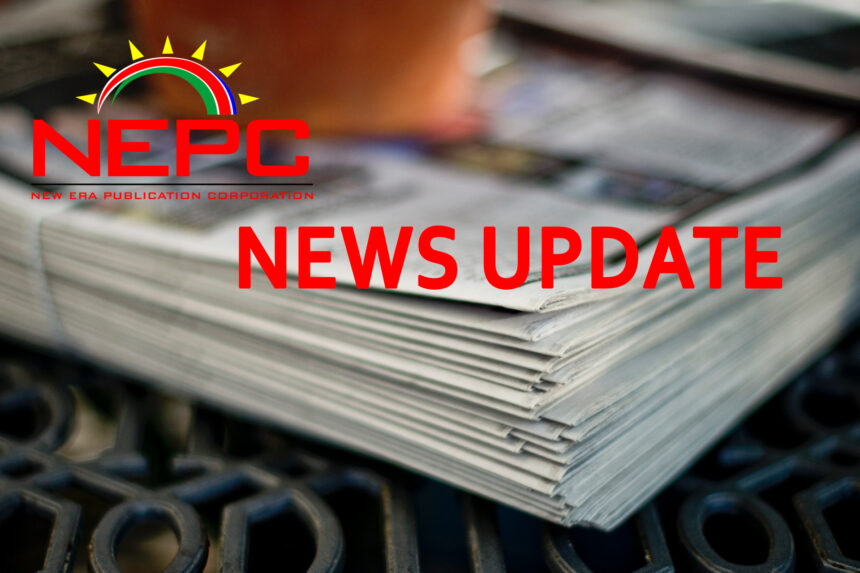After independence, Namibians were eager to repudiate tribalism as divisive. It was seen as an evil practice that was a serious obstacle to the unity of Namibians. Therefore, it was advanced in a way that assumed a fictitious homogeneity amidst diversity. But despite that repudiation, thirty-three years after independence, tribalism continues to agonise many patriotic Namibians.
There is enough evidence that Namibia had been and is still a divided country, not only along tribal lines, but even on regional groupings. We heard of nauseating tribalistic and regionalistic comments made by some eminent politicians and obstructionists in the past. Also, tribal audios and written messages had been doing the rounds on various social media platforms, especially WhatsApp groups calling other tribes lazy, stupid, poor and who don`t deserve the sympathy of the central government, or they can be bought out of the land because of their social and economic vulnerability. Recently, the Minister of Agriculture, Water and Land Reform in the Windhoek Observer of 20 March 2023 cited tribalism as worrisome, despite the ruling party’s efforts to liberate Namibia to guarantee that racism and tribalism become a thing of the past. He posited that the current divisions could easily escalate into true tribal hatred and consequent violence and civil war, arguing that it threatens the young democracy and all the gains made to grow into a nation.
His assertions add to the main concerns of many patriotic Namibians, editors of print media and commentators who raised red flags about the scourge. But they were shot down by some tribal politicians, who aggressively jumped to the conclusion that they were playing the tribal card without considering their contextual argument. It also shows that One Namibia, One Nation aspirations will remain a phantasm. Additionally, the shenanigans about unity during election campaigns seem to be just gimmicks to enable politicians and their cronies to get their turn to eat.
Disparaging
Tribalism is defined as the attitude and practice of harbouring a strong feeling of loyalty or bonds to one’s tribe that one excludes or even disparages other tribes which do not belong to that group. There is nothing wrong with being part of a certain tribe or advancing its values, but it becomes vicious when one sees others as inferior as it can foil the progress of a nation`s unity and development. Some leaders are known to be tribally discriminative due to their urge for wealth, power and fame, which makes them neglect personnel of great qualities who would have contributed immensely to the growth and progress of the country, and as such install their tribal members, family allies and close associates or long-term pals who are mostly not qualified personnel. These politicians and public servants lose sight of the national vision by ignoring their obligation to serve the people for the common good which requires the best team the country can offer, and not with an exclusive group who favour the notion of my/our region/tribe first. It is disappointing that there are still those who feel that their tribe is superior, who feel more Namibian, and that they are entitled to all the benefits/resources the country can provide such as employment, land, fishing quotas, strategic positions and promotions. It is also dismaying, especially in the era we are living in today, that people are not ashamed to propagate tribal agendas and disparage other tribes.
Practical inclusion
Although we are social creatures who gear towards community, and tribalism is ingrained into our DNA, it will be beneficial to pledge our loyalty to a ‘higher-level’ tribe so that we can all move forward together. During this time when tribalism refuses to die, Namibia does not need weak leaders who use one-sided popularity to sow division for their short-term political power, but strong leaders who will promote unity on all sides between all tribes.
Until genuine practical inclusion for all Namibians is in place, tribalism will continue resurfacing and precipitate divisions which could impede national unity. We need to accept each other as human beings to build a just society, where everybody will feel embraced. People who are working for their own selfish interests and trying to plant seeds of hatred and discord among tribes should not be entertained.
It is, therefore, indispensable that all peace-loving and independent-thinking Namibians should condemn all those who continue with barbaric name-calling and derogatory attacks against other tribes, and all other evils blighting our society in no uncertain terms.
Until Namibians honestly admit that tribalism exists and take bold steps to address it, the Namibian dream will remain an illusion, and our democratic process will continue to be hijacked by tribal politics.
*Faustinus Shikukutu is an experienced and passionate educator with research experience. He holds a PhD from the University of KwaZulu-Natal, and conducted research in Gender Studies.


